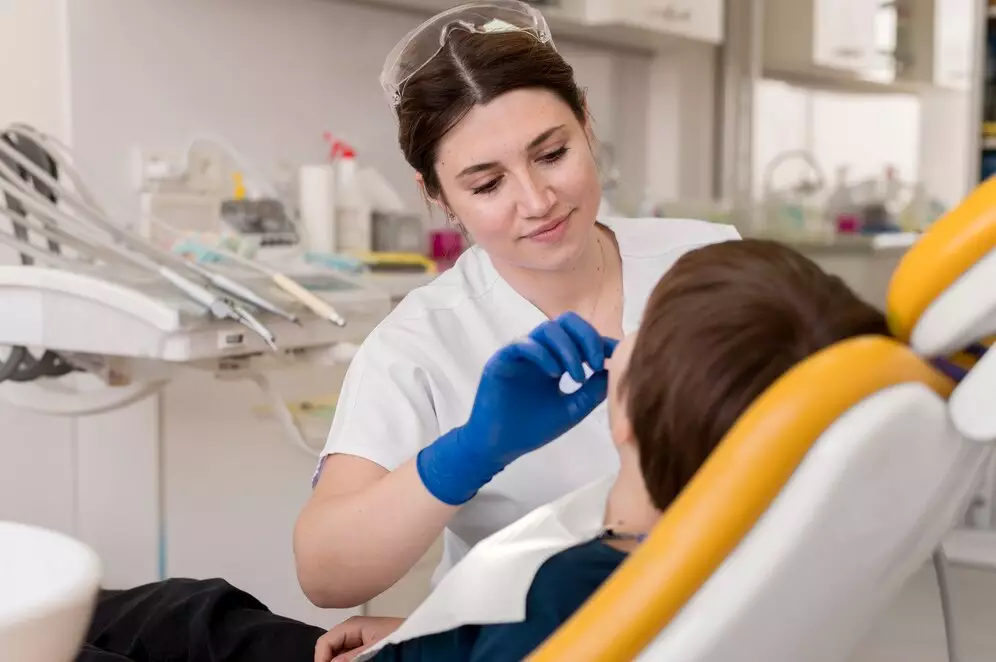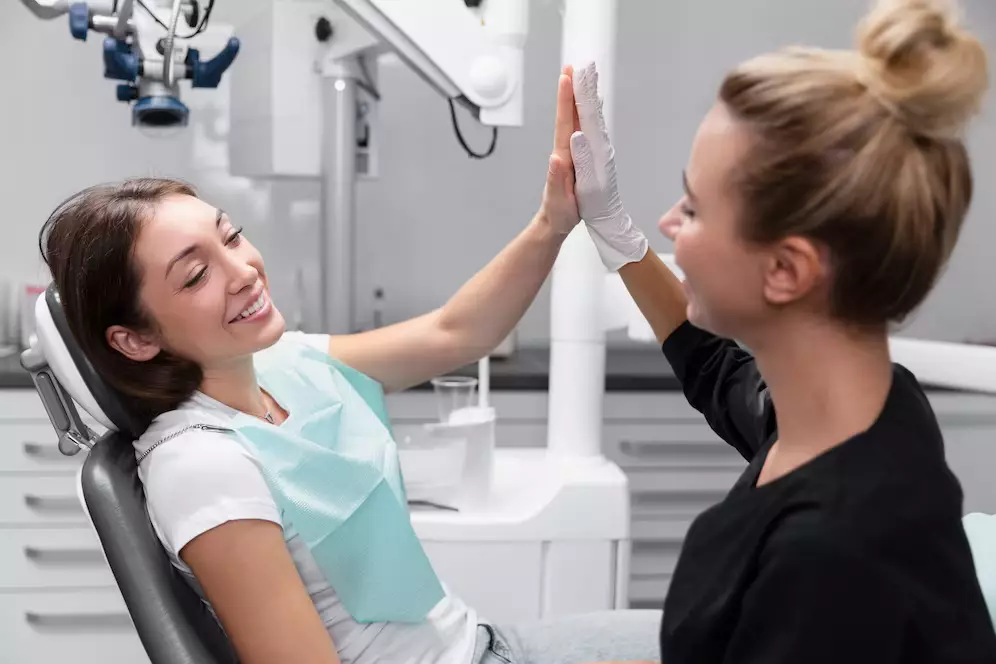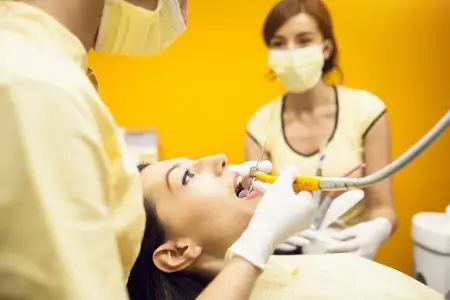Those who once experienced treatment without anaesthesia or faced negative consequences of unsuccessful intervention, are often afraid to go to the dentist again. How to get rid of psychological trauma and not be afraid of visiting the doctor, we will tell you in this article. Dentistry in recent decades has made a big step forward in the development of methods of minimally invasive and painless treatment. But even the understanding of this fact is poorly reassuring in anticipation of a visit to the doctor. The most effective way to deal with fear is to understand what it is you’re really afraid of and eliminate all worrying factors.
Tip 1
First make an appointment for a consultation.

This will save you from having to think of going to the dentist as a «last and decisive battle». You can already do this at the consultation:
- to be examined and understand the scale of intervention required;
- assess the personal qualities of the specialist;
- discuss treatment in detail with your doctor;
- schedule the procedures to be carried out in several stages.
Establishing a trusting relationship with your dentist is an important step to stop being afraid. If you are satisfied, you can make an appointment for your next visit.
Tip 2
During your first visit, assess the atmosphere in the clinic. Most dental establishments have a comfortable and calming environment. Moreover, this is a standard for any normal clinic. Polite and helpful staff, comfortable furniture, multimedia systems with pleasant and unobtrusive music – all these are mandatory elements of a clinic that respects its patients. If you do not like the environment, you should refuse further visits and find another facility.
Tip 3
Study on your own all known and used in modern dental practice methods of anaesthesia. This will help you to formulate the right questions to the specialist and get the most detailed and professional answers. Today, not only local anaesthesia is used, but also intravenous anaesthesia and sedation with xenon under the control of anaesthesiologists. For example, xenon – an inert one-atom gas that not only anaesthetises but also has a powerful sedative effect – can help with increased gag reflexes, allergic reactions to local anaesthetics, various jaw dysfunctions that prevent the patient from opening the mouth, and in a number of other cases.
Tip 4
Find your best time to go to the dentist. It should be a day when you are not thinking about work or family matters. This way, you can get rid of additional stressors, which means you will feel much calmer. It is also recommended that you make an appointment in the morning so that you don’t have to stress yourself out all day before you go to the dentist.

Tip 5
Fear of the dentist has a medical name – dentophobia. It is not an abnormality, but a psychological syndrome that goes away or at least eases considerably after the first successful visits to the dentist. You can use sedatives to reduce anxiety before treatment. For example, freely available plant-based sedatives. However, it is worth discussing this with your doctor, who may recommend certain medications. The doctor should also be aware of what medications you are taking so that he or she can guide you in the use of anaesthetics and other medications during treatment.
Tip 6
A feeling of control over the situation is important for psychological comfort. You can agree with the doctor on a special gesture that will act as a stop signal to stop the manipulation and take a short break. This will add confidence and calmness.

Tip 7
Do not focus on how you feel during treatment. Pleasant relaxing music, audiobooks or a film playing on the screen are great ways to pass the time. Distraction of attention and thoughts will speed up the subjective sense of time and the treatment will go faster.
Tip 8
Don’t delay in preparing for your visit and going to the doctor. Dental diseases never go away on their own. There are no other ways to solve the problem other than visiting dentists. And the longer you delay your visit, the more difficult, time-consuming and expensive the treatment will be.
Tip 9
Treatment is most effective in the early stages of the disease. Therefore, timely prevention is the best way to solve the problem with minimal intervention in a short time and without undergoing complicated procedures. By visiting the doctor every six months, you will save yourself from many potential oral problems and preserve your teeth.
 This will save you from having to think of going to the dentist as a «last and decisive battle». You can already do this at the consultation:
This will save you from having to think of going to the dentist as a «last and decisive battle». You can already do this at the consultation:








